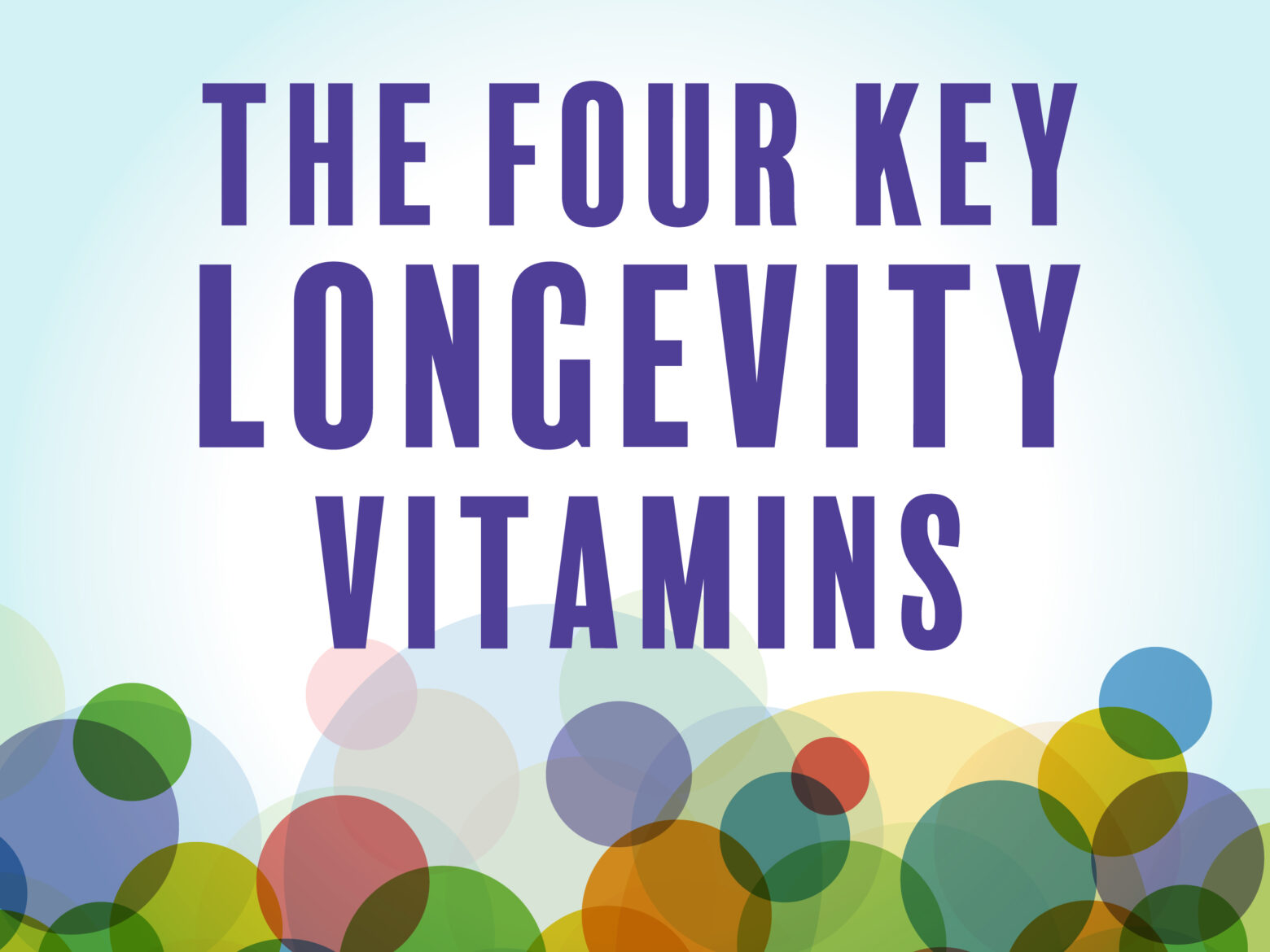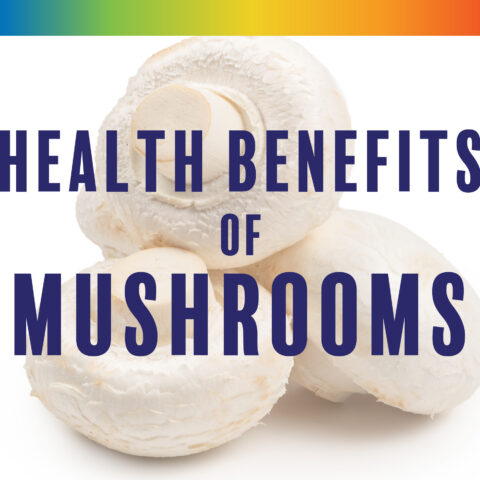Four Key Longevity Vitamins
Loren Cordain, Ph.D., M.S., Mark J. Smith, Ph.D., Ph.D., Trevor Connor, M.S.

This article on longevity vitamins is an excerpt adapted with permission from the book Paleo for Life: Superfoods to Slow Aging, Boost Longevity, and Enhance Your Well-Being by Dr. Loren Cordain, Trevor Connor, and Dr. Mark J. Smith. In this groundbreaking guide, the leaders of the Paleo nutrition movement reveal the longevity superfoods that can help you live longer and better, starting today.
We all know that vitamins and minerals are essential nutrients we need to consume to survive. Scientists identified many of these essential nutrients a century ago, including vitamins C, E, and B, and minerals like magnesium and calcium. These nutrients are relatively easy to identify because people and animals quickly become sick if they don’t get enough of them in their diets. These vitamins have been named “survival vitamins,” a concept posed by Dr. Bruce N. Ames, a well-known professor of biochemistry and at the University of California, Berkeley, as part of his Triage Theory of Aging.
Survival vitamins are vitamins we need for short-term survival. However, there is a second category of nutrients Dr. Ames calls “longevity vitamins.” We are less familiar with these nutrients because deficiencies don’t show up immediately but can lead to chronic disease and rapid aging over decades.
Dr. Ames’ Triage Theory of Aging suggests that many nutrients serve as both survival and longevity vitamins. Evolution has ensured that when we are deficient in one of these nutrients, our bodies prioritize their survival role over their longevity role. So, we may get enough of a certain nutrient to serve its survival role, but not enough to support its longevity role.
RDAs Are Based on Survival, Not Longevity
The problem is that the recommended intakes—called the RDA (recommended dietary allowance) or EAR (estimated average requirement) by the U.S. government—are based on the survival role. In other words, even if we’re meeting our EARs, we may not be getting enough of these nutrients to ensure healthy longevity.
A sad fact is that many North Americans aren’t even meeting the RDAs, let alone meeting their longevity needs. Some of the most common deficiencies include vitamin D, vitamin E, magnesium, vitamin K, and folate.
Longevity Vitamins
Longevity vitamins impact the various processes in our bodies that determine how well we age. While many survival vitamins also serve a longevity role, many more nutrients serve only a longevity role.
Because the government hasn’t yet identified them as vitamins, there aren’t any specific dietary recommendations for them to date. These important longevity nutrients include taurine, ergothioneine, pyrroloquinoline quinone (PQQ), berberine, and a host of carotenoids and flavonoids—which are a large group of natural plant substances recognized for their beneficial impact on human health.
This may be why multivitamins have consistently been shown to be ineffective in supporting long-term health. A recent meta-analysis showed that taking multivitamins was actually associated with a greater risk of all-cause mortality.
No, this isn’t an error in our text. The researchers really did report that people who consume the most multivitamins don’t live as long as those who take fewer! Our explanation for this is that people who take a lot of multivitamins also tend to eat nutrient-poor diets and rely on multivitamins to compensate. Sadly, they’re only meeting their survival needs and missing out on what they need for longevity.
Four Powerful Longevity Nutrients
In Paleo for Life, we show how several of these recently identified, exciting longevity nutrients help extend both your life and health, and how to ensure you include them in your diet. Keep in mind, though, that many more longevity vitamins will likely be identified over the decades to come. Ultimately, the only way to ensure you’re getting all of the survival and longevity vitamins you need is to eat a nutrient-dense diet—which, of course, is a central tenet of The Paleo Diet.
Research has identified four key vitamins that have an outsized impact on aging. Get too little of these, and you make your body more susceptible to age-related conditions and diseases. Get plenty of these key longevity vitamins from natural foods and you can improve your health later in life.
These antioxidants deserve to be in the spotlight:
- Taurine: Shown to improve strength, coordination, vision, and memory while lowering blood pressure and improving blood lipids.
- Ergothioneine: Associated with scavenging a particularly potent type of free radical, protecting telomere length (protective caps on the ends of chromosomes), and lowering the incidence of cardiovascular disease and chronic inflammatory conditions.
- PQQ (pyrroloquinoline quinone): Found to enhance cognitive function in older adults and critical for its role in reducing inflammation and maintaining adequate blood flow.
- Berberine: Proven to be promising in improving blood lipids and regulating blood pressure.
Paleo for Life
Paleo for Life reveals how your favorite foods and flavors can help you live a longer, healthier life.
Discover the most potent antiaging superfoods and see how what’s on your plate connects to how you feel each day. Includes a two-week meal plan and 50+ superfood recipes.
Live longer and better, starting today, with Paleo for Life.




